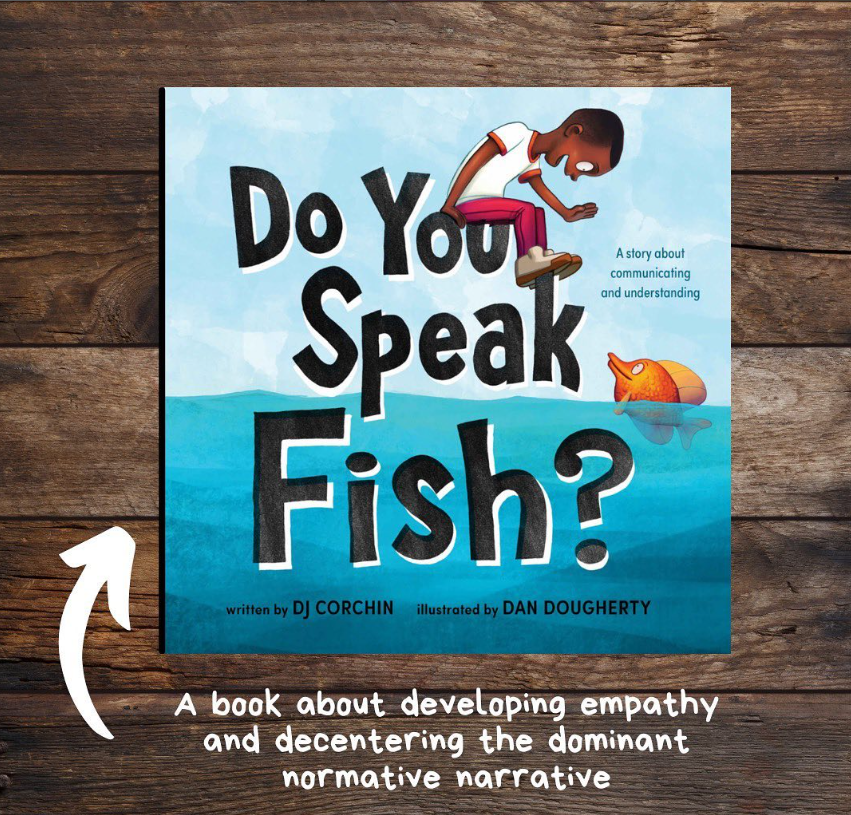Do You Speak Fish?
- Mitra

- Sep 25, 2021
- 1 min read

𝗔 𝗺𝘂𝗹𝘁𝗶-𝗹𝗮𝘆𝗲𝗿𝗲𝗱 𝗯𝗼𝗼𝗸 𝗼𝗻 𝘀𝗼𝗰𝗶𝗮𝗹 𝗰𝗼𝗺𝗽𝗿𝗲𝗵𝗲𝗻𝘀𝗶𝗼𝗻 𝗮𝗻𝗱 𝗱𝗲𝗰𝗲𝗻𝘁𝗲𝗿𝗶𝗻𝗴 𝘁𝗵𝗲 𝗱𝗼𝗺𝗶𝗻𝗮𝗻𝘁 𝗻𝗼𝗿𝗺𝗮𝘁𝗶𝘃𝗲 𝗻𝗮𝗿𝗿𝗮𝘁𝗶𝘃𝗲
I loved DJ Corchin’s “A Thousand No’s” and have been waiting eagerly for his new book, “Do You Speak Fish?”
A boy meets a fish and says hello to him. But the fish doesn’t reply. “How rude!” thinks the boy and tries talking to other animals and insects, who just ignore him. He then meets a tree, who asks the boy if he spoke ‘Fish’ because, “Why would the fish speak ‘Kid’?” The boy learns ‘Fish’ and other languages and talks to the fish, insects, and animals and “their world got a whole lot bigger.”
As with “A Thousand No’s”, this book too, is multi-layered. On the surface, it is a simple story on understanding languages; dig deeper and it is about cultural differences, and social comprehension. Going further, this book is a wonderful asset for all public relations agents, communications experts, and advertising agencies on communicating in a way that speaks to their clients.
But above all, this book is for every decision-maker and person-in-power in every organization – school or corporate – it is a call for them to lean in and listen to the language their subordinates speak, to decenter the dominant normative narratives in the organization and to find humanity and empathy.
In Sara K Ahmed’s words, “We respond better to those who look like us. And to those who don’t look like us, we can pause and be mindful of when those reactions are based only on partial information or lack of experience…” This book exemplifies this point of view!




Comments